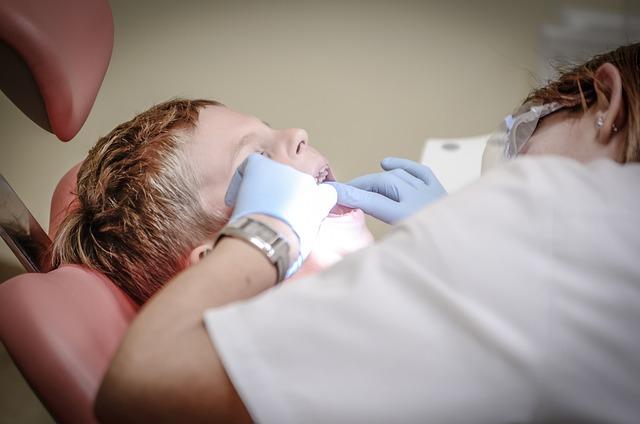Are you suffering from the pain of an abscessed tooth? Discover effective home remedies that provide relief and promote healing.
1. Understanding the Symptoms and Causes of an Abscessed Tooth
An abscessed tooth can cause significant pain and discomfort, making it crucial to understand its symptoms and causes. Here are some important points:
- Symptoms: The most common signs of an abscessed tooth include severe toothache, throbbing pain, swelling and redness of the gums, a bump on the gum near the affected tooth, sensitivity to hot or cold, persistent bad breath, and a foul taste in the mouth.
- Causes: Abscessed teeth usually occur as a result of untreated dental cavities, tooth decay, or gum disease that allows bacteria to enter the innermost part of the tooth, called the pulp. When the bacteria infect the pulp, it leads to an abscess – a pocket of pus that forms at the root of the tooth.
- Complications: If left untreated, an abscessed tooth can have serious consequences. The infection can spread to nearby tissues, causing facial swelling and potential damage to the jawbone. In severe cases, the infection can even enter the bloodstream, leading to systemic complications.
Recognizing the symptoms and understanding the causes of an abscessed tooth can help you seek early treatment, prevent complications, and ensure proper oral health. If you experience any of these symptoms, it’s important to schedule an appointment with your dentist promptly.
2. Simple and Effective Home Remedies for Relieving Abscessed Tooth Pain
An abscessed tooth can be extremely painful and uncomfortable, but there are several simple and effective home remedies that can help provide relief. These remedies are easy to implement and can offer temporary relief while you wait to see a dentist for proper treatment.
Warm Saltwater Rinse
One of the easiest and most effective remedies for abscessed tooth pain is a warm saltwater rinse. Simply dissolve half a teaspoon of salt in eight ounces of warm water and swish the solution around your mouth for 30 seconds before spitting it out. This rinse can help reduce inflammation and kill bacteria in the affected area.
Cloves or Clove Oil
Cloves contain a natural compound called eugenol, which acts as a local anesthetic and can help numb the pain caused by an abscessed tooth. You can either chew on a whole clove or apply a few drops of clove oil directly to the affected area using a cotton ball. Be careful not to apply too much pressure as it may worsen the pain.
Cold Compress
Applying a cold compress to the affected area can provide temporary relief by numbing the area and reducing swelling. Wrap a few ice cubes in a thin cloth and hold it against your cheek on the side where the abscessed tooth is located. Do this for 15 minutes at a time, several times a day.
It’s important to remember that these home remedies are not a substitute for professional dental care. They are only meant to provide temporary relief until you can see a dentist. If you experience severe pain, swelling, or other concerning symptoms, make sure to seek professional dental treatment as soon as possible.
3. Natural Antibacterial Agents: Harnessing the Power of Salt Water Rinses
Saltwater rinses are a natural and powerful way to combat bacteria in our mouths. The high salt content in the rinse creates an inhospitable environment for harmful bacteria, reducing the risk of infection and promoting overall oral health. Here’s why saltwater rinses should be a part of your dental care routine:
1. Sodium chloride, the main component of salt, has antimicrobial properties that effectively kill bacteria. When rinsing with saltwater, the solution helps to loosen plaque and debris, making it easier to remove during brushing and flossing.
2. Saltwater rinses can alleviate gum inflammation and reduce oral swelling. The salt acts as a mild astringent, promoting the healing of irritated gum tissue and soothing gum discomfort.
3. Saltwater rinses promote faster healing of oral wounds, such as canker sores or after oral surgeries. The natural antibacterial properties of saltwater prevent infection and accelerate the healing process.
To make your own saltwater rinse, dissolve 1/2 teaspoon of salt in 8 ounces of warm water. Swish the mixture around in your mouth for 30 seconds to 1 minute, focusing on the areas with gum inflammation or oral wounds. Spit out the solution and rinse your mouth with plain water afterward.
Remember, saltwater rinses are not a substitute for regular dental hygiene practices. They should be used in addition to brushing, flossing, and regular dental check-ups to maintain optimal oral health.
4. The Healing Properties of Clove Oil: A Soothing Remedy for Abscessed Teeth
Clove oil has long been hailed for its remarkable healing properties, especially when it comes to abscessed teeth. This natural remedy has provided countless individuals with relief from the intense pain and discomfort caused by dental abscesses. Here’s why clove oil is considered a soothing remedy for abscessed teeth.
- Anesthetic properties: Clove oil contains a substance called eugenol, which acts as a powerful local anesthetic. When applied to the affected tooth or gums, it numbs the area, providing immediate relief from pain.
- Anti-inflammatory action: In addition to its analgesic effects, clove oil acts as an effective anti-inflammatory agent. By reducing swelling and inflammation in the affected area, it helps to alleviate the discomfort caused by abscessed teeth.
- Antimicrobial effects: One of the key reasons clove oil is a go-to remedy for abscessed teeth is its potent antimicrobial properties. The oil effectively fights bacterial growth, preventing further infection and promoting faster healing.
To use clove oil as a remedy for abscessed teeth, simply soak a cotton ball in a small amount of the oil and apply it directly to the affected area. Alternatively, you can dilute clove oil with a carrier oil, such as coconut oil, and gently massage it onto the gums surrounding the abscessed tooth. Remember to consult your dentist before trying any home remedies, and if symptoms worsen or persist, seek professional dental care.
5. Promoting Oral Health with Tea Tree Oil: A Natural Solution for Abscessed Teeth
Tea tree oil has long been praised for its natural healing properties, and it can also be used to promote oral health, especially in cases of abscessed teeth. With its powerful antibacterial and anti-inflammatory properties, tea tree oil can help alleviate pain and reduce infection, offering a natural alternative to traditional treatments.
When using tea tree oil for oral health, it’s important to dilute it with a carrier oil, such as coconut or olive oil, to avoid irritation. Simply mix a few drops of tea tree oil with your carrier oil of choice and apply it to the affected area using a clean cotton swab or your finger.
In addition to its direct application, tea tree oil can also be used as an ingredient in homemade mouthwash or toothpaste. Combine a few drops of tea tree oil with water or baking soda, respectively, and enjoy the added benefits of its antimicrobial properties while freshening your breath and promoting overall oral health.
6. The Magic of Garlic: A Powerful Antibacterial Remedy for Abscessed Teeth
Garlic, with its pungent aroma and distinct flavor, is not only a versatile ingredient in the kitchen but also a potent antibacterial remedy for abscessed teeth. This small, bulbous plant has been used for centuries to treat a variety of ailments, and its effectiveness in combatting oral infections is no exception.
So, what makes garlic such a remarkable healer for abscessed teeth? Here are a few key reasons:
- Allicin: Garlic contains a compound called allicin, which has strong antibacterial properties. Allicin helps to eliminate the harmful bacteria that cause the abscess, reducing inflammation and pain in the affected area.
- Antioxidants: Another benefit of garlic is its high antioxidant content. These antioxidants help to strengthen the immune system, enabling it to better fight off the infection and promote faster healing.
- Anti-inflammatory properties: The anti-inflammatory properties of garlic can assist in reducing swelling and discomfort associated with abscessed teeth. By applying garlic topically or consuming it, the inflammation in the affected area can be alleviated.
While garlic can be an effective natural remedy for abscessed teeth, it is important to consult with a dentist or healthcare professional for proper diagnosis and treatment. Garlic should be used as a supplementary treatment in conjunction with professional dental care to ensure the best possible outcome.
7. The Role of Turmeric in Treating Abscessed Teeth: A Natural Anti-inflammatory Option
Turmeric, a bright yellow spice commonly found in Indian cuisine, has been gaining recognition for its potential benefits in treating abscessed teeth. With its long history of use in traditional medicine, this natural anti-inflammatory option can provide relief and promote healing.
So, how does turmeric help with abscessed teeth? Let’s take a closer look:
- Anti-inflammatory properties: The active compound in turmeric, called curcumin, possesses powerful anti-inflammatory properties. These properties can help reduce the swelling and pain associated with abscessed teeth, providing much-needed relief.
- Antibacterial effects: Turmeric has been found to exhibit antibacterial effects, which can be beneficial in fighting the infection causing the abscess. It may help inhibit the growth of bacteria and promote oral health.
- Pain relief: The analgesic properties of turmeric can help alleviate the pain caused by abscessed teeth. This natural alternative to painkillers can offer a safer option for managing discomfort.
- Healthy gum support: Turmeric’s anti-inflammatory and antibacterial properties can also promote overall gum health. Applying turmeric paste or using turmeric mouthwash may help soothe irritated gums and aid in preventing further dental issues.
While turmeric shows promise in treating abscessed teeth, it is important to note that it should not replace professional dental care. Consulting with a dentist is crucial for an accurate diagnosis and appropriate treatment. Incorporating turmeric as a complementary remedy, alongside proper dental care, may help support the healing process.
8. When to Seek Professional Help: Recognizing the Limits of Home Remedies for Abscessed Teeth
If you are dealing with an abscessed tooth, it is crucial to understand when it is time to seek professional help. While home remedies can provide temporary relief, there are limits to what they can achieve. Here are some signs that indicate it is time to consult a dental professional:
- Persistent pain: If the pain in your abscessed tooth lasts for more than a couple of days despite trying home remedies, it is a clear indicator that you should seek professional help. Dentists have the expertise to identify the underlying cause of the pain and provide appropriate treatment.
- Swelling and pus: The presence of swelling around the affected tooth or the formation of a pimple-like swelling on the gums can indicate an abscess. If you notice pus discharge, it’s crucial to see a dentist as soon as possible to prevent the infection from spreading further.
- Fever and other systemic symptoms: If you experience a high fever, difficulty swallowing, or swollen lymph nodes along with an abscessed tooth, it is a sign that the infection may have spread. These systemic symptoms necessitate immediate professional intervention.
Remember, while home remedies such as rinsing with warm saltwater or applying cold compresses can provide temporary relief, they do not address the underlying cause of the abscess. A dental professional will be able to diagnose the problem accurately and provide appropriate treatment to alleviate your symptoms and prevent further complications.
In summary, these home remedies effectively alleviate abscessed tooth pain: saltwater rinse, clove oil, garlic, tea bags, and turmeric paste. Remember, while these remedies can temporarily relieve symptoms, professional dental care is crucial. Take care of your oral health for long-term relief.






